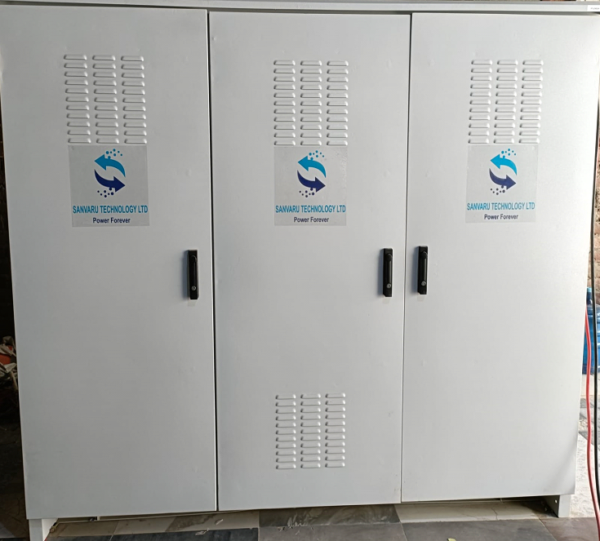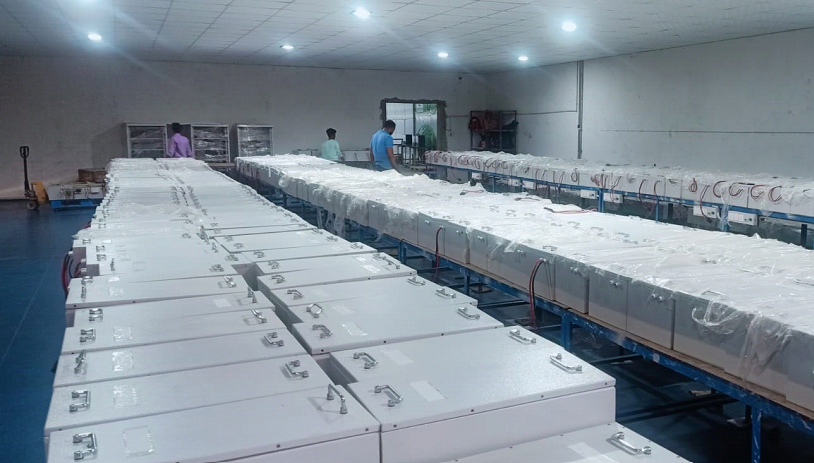Haryana-based Sanvaru Technology has revealed that it will more than triple its lithium battery manufacturing capacity to 400 MWh per year, as demand has surpassed supply.
The company currently has a 125 MWh/year facility in Sonipat, Haryana, where it makes lithium batteries for the solar storage and electric vehicle segments. Its expansion plans are now underway, and its next factory will be built in Haridwar.
“We expect our revenues to cross INR 175 crore ($22 million) this year, as we have received letters of intent for orders worth INR 300 crore, but have production capacity limited to serve INR 175 crore value,” Sunil Bhatnagar, international business director for new and emerging technologies at Sanvaru Technology, told pv magazine.
Bhatnagar said the electric vehicle market is expanding, with two-wheelers and three-wheelers leading sales. For four-wheelers, the electric bus market is quickly emerging as a mode of mass rapid transportation. Another potential segment is e-tractors, which are good for exports, but the domestic market is also coming up now, said Bhatnagar.

Image: Sanvaru
In line with current market trends, Sanvaru’s focus area is lithium batteries for EVs. On the solar side, it mainly makes high-voltage energy storage systems. It also makes some batteries for applications such as medical equipment and e-cycles.
Recently, Sanvaru crossed the milestone of 1,000 LiFePO4 battery supplies for L3 and L5 electric automobiles. It has already developed batteries for e-tractors and e-trucks (250 kWh battery packs) and is now looking to partner with some original equipment manufacturers in this segment.
“E-bus battery is also in the pipeline as it’s quite similar to e-truck batteries. Another vertical which is coming up is megawatt-level containerized solutions, where Sanvaru is working on many fronts,” said Bhatnagar.
Sanvaru has a supply base that spans all of India. Apart from that, it exports batteries to neighboring countries and markets in Africa.
This content is protected by copyright and may not be reused. If you want to cooperate with us and would like to reuse some of our content, please contact: editors@pv-magazine.com.









4 comments
By submitting this form you agree to pv magazine using your data for the purposes of publishing your comment.
Your personal data will only be disclosed or otherwise transmitted to third parties for the purposes of spam filtering or if this is necessary for technical maintenance of the website. Any other transfer to third parties will not take place unless this is justified on the basis of applicable data protection regulations or if pv magazine is legally obliged to do so.
You may revoke this consent at any time with effect for the future, in which case your personal data will be deleted immediately. Otherwise, your data will be deleted if pv magazine has processed your request or the purpose of data storage is fulfilled.
Further information on data privacy can be found in our Data Protection Policy.